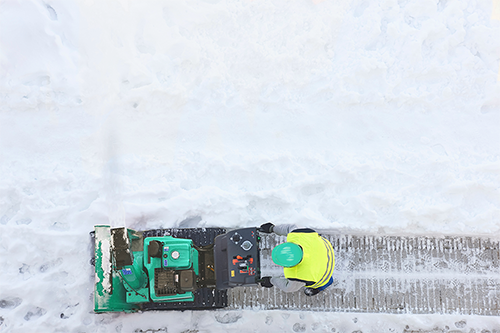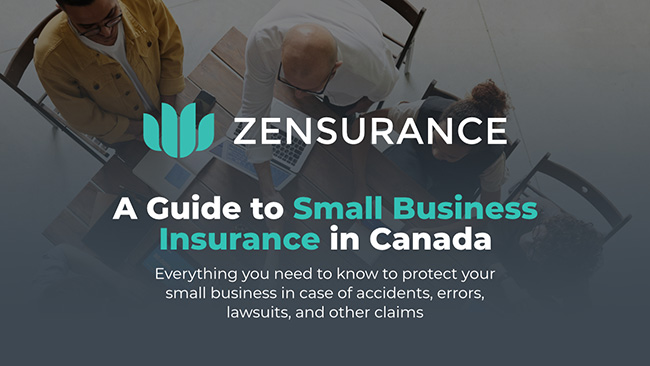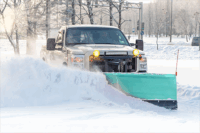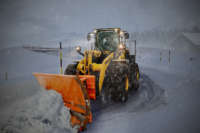As you get ready for the winter ahead by offering your business’s snow removal services to your customers, you’ll want to be prepared to have them sign a contract.
However, many components are involved in a snow removal contract, and there are different types of snow removal contracts.
While it’s possible to download a pre-drafted snow removal contract from various websites for free, we strongly advise seeking legal counsel for the drafting and reviewing of your customer contracts. This precaution is essential to ensure your business is protected, as the adage ‘you get what you pay for’ rings true, especially when it comes to legal matters.
Below are a few key points to remember when structuring your customer contracts. Clear and concise terms will not only define your scope of services but also prevent misunderstandings or disputes, and ensure timely payments, thereby instilling confidence in your customers and fostering the growth of your business.

What Should a Snow Removal Contract Include?
Typically, there are a number of components that a snow removal customer contract should include, such as:
- Who’s Involved: The contract must clearly state your business information and your customer’s information, including full company or legal names, phone numbers, email addresses, and the address where your snow removal services will be performed.
- A Description of the Property: Provide an in-depth description of the property where your snow removal services will be conducted. Detail specific areas on that property where snow removal or plowing, sanding and salting will be applied, including driveways, parking areas, walkways, sidewalks, and anywhere else you’re asked to keep clear of ice and snow.
- Your Terms of Service: A contract should include your terms of service, such as the duration of the agreement, its start and end dates, and whether it’s for one winter or a specific period.
- The Scope of Your Services: Outline the scope of your services, including the type of service (snowplowing, snow blowing, shovelling, salting, deicing), and define what is considered to be a “snowfall event” that you’ll respond to within a specific timeframe or by a particular accumulation of snow within a set period. It’s also necessary to include details about circumstances beyond your control that may prevent you from providing your snow and ice removal services within the agreed-upon timeframe because of extreme weather conditions or a natural disaster.
- Your Payment Terms: Provide a breakdown of your pricing per service you offer. That could be based on each snowfall or weather event or the size of the property, or you could offer a flat rate. Be sure to include what payment options you offer, when they can expect to receive an invoice and how frequently, when payment is due per invoice, and what the late payment fees are if a customer misses a payment deadline.
- Insurance and Liability Details: Your contracts should include your certificate of insurance and an outline of what your liability insurance provides. Your customer may be required to be included in the policy as an additional insured. Include a “hold harmless” clause that indemnifies you from damage and loss claims unless due to your company’s or employees’ negligence.
- Additional Conditions Relating to Your Services: If there are days or times when you will not be available to provide snow removal services, such as on specific holidays, include those details. Also, state the contract termination conditions and any additional costs the customer may incur because of extraordinary circumstances.
- The Signatures: Snow removal contracts are only valid if you and your customers sign and date them. Signatures and the date the agreement was signed are necessary for indicating that both parties understand and agree to the contract’s terms and conditions.
What Types of Snow Removal Contracts Are There?
There are several types of snow removal contracts, but to keep it simple for the purpose of this basic outline, we’ve narrowed it down to these four:
1. Seasonal Contracts
A seasonal contract is, perhaps, the best option for you and your customers. It allows you to set a fixed rate for your services throughout the winter months (typically November through April) for more than one year, regardless of how much snowfall occurs. That gives you and your customers cost certainty and keeps the vetting process short and sweet.
2. Pay-As-They-Go
If your customers prefer to pay-as-they-go, which means you show up and clear their properties whenever and however often inclement weather hits, you can charge per visit. If you visit more than once in 24 hours, you can charge accordingly.
3. Pay By Snow Accumulation
Utilize local weather forecasts to know what total snow accumulation falls on a specific area if your customer wishes to pay by the amount of snow on their property. Relying on your local news broadcaster for official snowfall accumulations can prevent customer disagreements on how much fell. But there’s a downside to this type of agreement since it makes budgeting trickier, and if it’s a winter with lighter-than-average snowfall compared to previous years, it’ll hit your bottom line.
4. Pay By Time-On-Site
Some customers may want a contract that pays you for the time you physically spend clearing snow and ice on their properties. This could prove lucrative in heavier winters, but it could also add pressure if a customer is counting the minutes and pressuring you to work as fast as possible – rushing a job could lead to accidents and damages.
Commercial and Residential Snow Removal Service Contracts: What’s the Difference?
There are a few similarities between commercial and residential snow removal contracts but also significant differences. Let’s look at each:
- Commercial Snow Removal Contracts
Commercial snow removal contracts are for services related to clearing business properties, institutions, and other organizations with properties that typically have large parking lots, more than one driveway, several walkways, and many entrances and exits. There may also be private roads on the property you’ll have to clear. These contracts may hold more liability risks but are usually more lucrative.
A commercial snow removal contract may also require you to bid on a contract and more in-depth planning for managing snow and ice clearing to prevent slips and falls, which can lead to lawsuits.
- Residential Snow Removal Contracts
A residential snow removal contract for a homeowner or a homeowners association typically focuses on clearing the property’s driveways, walkways, and possibly private roads. These types of contracts may need to be more flexible to adjust to the homeowner’s needs. The services may also be lighter touch – snow blowing, shovelling, and some deicing. From a liability standpoint, the focus is ensuring the homeowner can safely access and traverse their property.
How to Get Low-Cost Snow Removal Insurance
It can be challenging to get the right coverage to protect your snow removal business and operations from its liabilities. Let Zensurance take the hassle of getting low-cost, comprehensive snow removal insurance off your hands.
Fill out our online application for a free quote in five minutes or less.
Our friendly team of experienced brokers will shop our partner network of over 50 insurers to find the coverage you need and customize it to suit your specific requirements, so you’re ready to let it snow!
Recent Posts
Zensurance $25,000 Business Grant Recipient: Sol & Sage Yoga
We are thrilled to announce the recipient of our $25,000 grant and recipients of our five $1,000 grants! Read on to learn valuable advice from these business owners for other entrepreneurs, and to discover why they consider insurance a crucial element of their financial stability.
How Canadian Small Businesses Can Use Artificial Intelligence (AI) to Increase Sales and Revenue
Using AI effectively can help Canadian small businesses attract more customers, increase sales, and improve customer service, often without new hires or large budgets. Many business owners are already using AI without realizing it. This guide explains how to start small, stay focused, and grow results in five practical steps.
5 Trends for 2026 Every Small Business Owner Should Know
See what’s hot for the year ahead with these five trends that Canadian small business owners and independent professionals should have on their radar in 2026, and how they can work them into their strategies.
Sign Up for ZenMail
"*" indicates required fields








